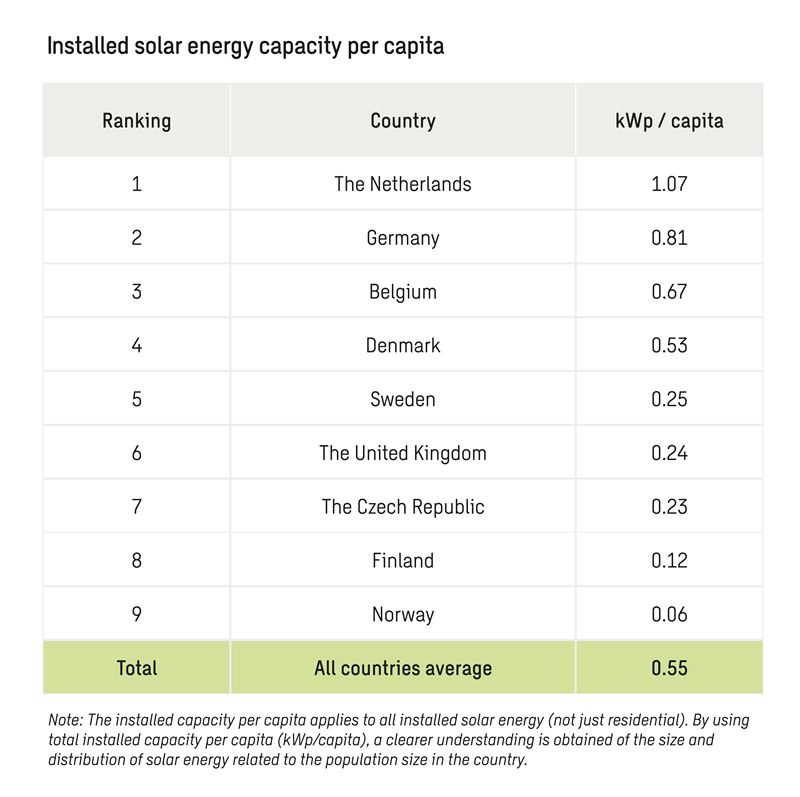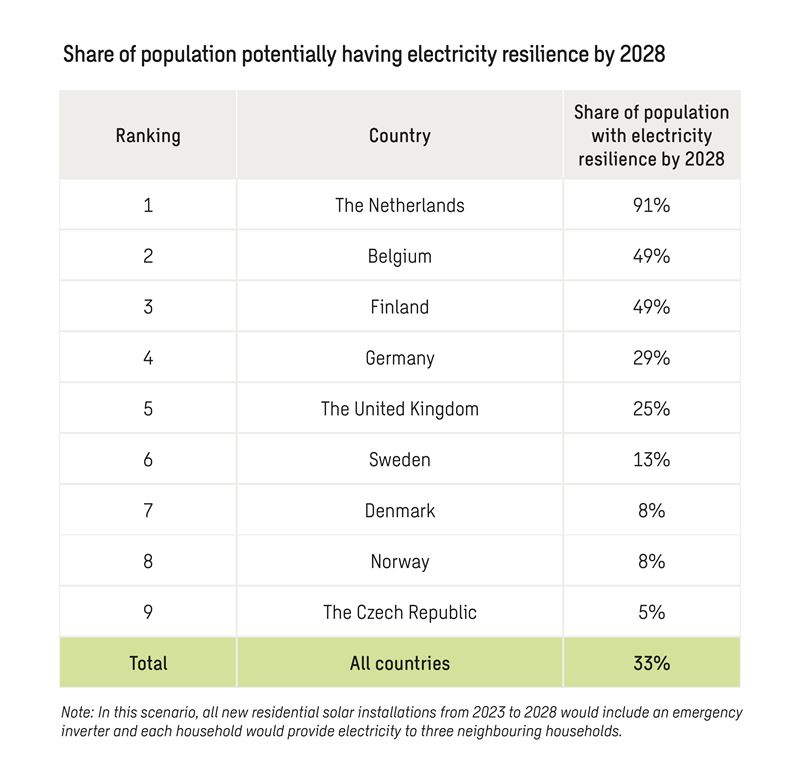Enhancing electricity system resilience: Netherlands holds best potential, the Nordics least prepared
The Netherlands has the greatest potential to enhance electricity system resilience through residential solar energy and emergency inverters. Conversely, countries in Northern Europe are the least prepared. Sweco’s study on electricity system resilience in nine European countries, published today, shows that solar power can play a crucial role in mitigating the effects of power outages by enabling access to essential basic needs and public services.

During power outages, low-capacity emergency power can sustain vital functions such as mobile communication between citizens and authorities, water access or charging basic appliances. One promising solution is emergency power generated from residential solar panels in combination with emergency inverters during daytime or hybrid inverters with full backup batteries.
“With increasing extreme weather events and external threats, energy system resilience is needed to mitigate risks from prolonged blackouts. Citizens as well as authorities must explore strategies for safeguarding easy access to electricity, both for communication purposes and for maintaining basic societal needs,” says Conny Udd, Division Manager Energy & Industry, Sweco Sweden.
Inverters play a critical role when, due to safety considerations, standard grid-connected solar energy plants cease to produce electricity during power outages. Emergency inverters, designed to connect smaller loads without the need for batteries, enable the operation of essential appliances during power outages. Hybrid inverters, which integrate batteries or other forms of storage, offer a more comprehensive solution but are considerably more expensive.
The analysed countries have witnessed growing adoption of solar power systems driven by the ongoing energy transition, decreasing solar prices, subsidies and increased regulations. Germany is the leader in installed solar capacity, while the Netherlands has the highest capacity per capita. Norway currently lags in solar power adoption, together with Sweden and Finland.
“By embracing residential solar power solutions, more countries can fortify their energy systems for a small cost – even in challenging circumstances,” adds Conny Udd.
Read the full study: Solar Energy Resilience – Emergency power from solar panels during blackouts
About the study
- Sweco has analysed the possible electricity resilience for the next five years in nine European countries by examining the future development of solar energy as well as the cost of and possible loads from emergency power solutions during power outages.
- The study also explores the theoretical potential of enhancing resilience in critical infrastructure, such as water management and mobile communications, by integrating solar energy solutions or siting them near solar power plants.
- Countries included in the study: Belgium, the Czech Republic, Denmark, Finland, Germany, the Netherlands, Norway, Sweden and the UK.


For additional information, please contact:
Cecilia Strömmar, Head of Press, Sweco AB, cecilia.strommar@sweco.se, +46 72 39399 03
Sweco plans and designs the sustainable communities and cities of the future. Together with our clients and the collective knowledge of our 20,000 architects, engineers and other experts, we co-create solutions to address urbanisation, capture the power of digitalisation, and make our societies more sustainable. Sweco is Europe’s leading engineering and architecture consultancy, with sales of approximately SEK 24 billion (EUR 2.2 billion). The company is listed on Nasdaq Stockholm. www.swecogroup.com.




